by Kiilu Nyasha
“As a slave, the social phenomenon that engages my consciousness is, of course, revolution.” – George L. Jackson
The revision of Black August
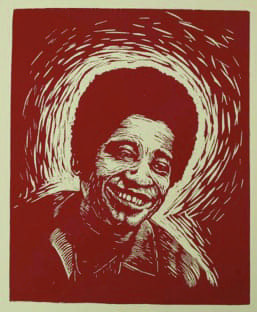
During these four decades, we’ve witnessed a steady revision of the meaning of Black August and its inherent ideology, the undisputed leader of which was our martyred comrade, George Lester Jackson.
Sadly, lots of individuals – many of whom are straight-up Black capitalists and Black nationalists – have seized upon Black August as a means of profiteering and lime-lighting, self-aggrandizement and promotion of their own agendas. For those reasons, I want to make very clear the ideology espoused by George and Jonathan Jackson and their comrades.
During these four decades, we’ve witnessed a steady revision of the meaning of Black August and its inherent ideology.
First of all, George was unequivocally an internationalist and a socialist. He despised racism and, along with his brother, Jonathan, eschewed cultural nationalism.
For example, in George Jackson’s second book, “Blood in My Eye,” published posthumously in 1972, Jonathan Jackson, 17, was quoted as follows:
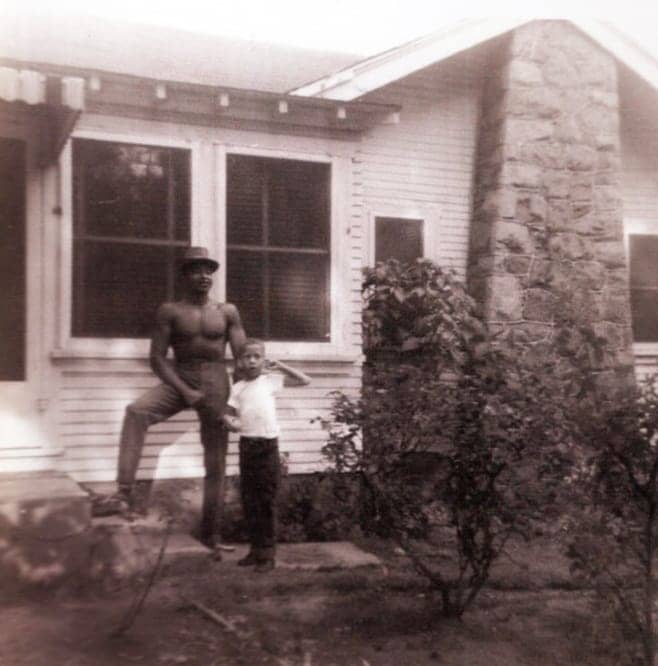
“I’m just a young slave … but every time I think of [Gloves] Davis, Jess B. Simple, Karenga and the rest of these murderous turncoat idiots, my trigger finger fairly itches! Non-persons like Karenga, LeRoi Jones [Amiri Baraka] and the other right-wing Blacks are intelligent enough to know what they are doing. We cannot excuse them with the ease that we can excuse the average brother who has had no opportunity or inclination to search.
“The mantle of ignorance doesn’t cover their behavior. They have to know that when they attack socialism, the communist ideal, and revolution that they are not logically … attacking all that is white, etc. They know that Ho Chi Minh isn’t white or Chairman Mao, or Nkrumah, Lumumba and Toure.
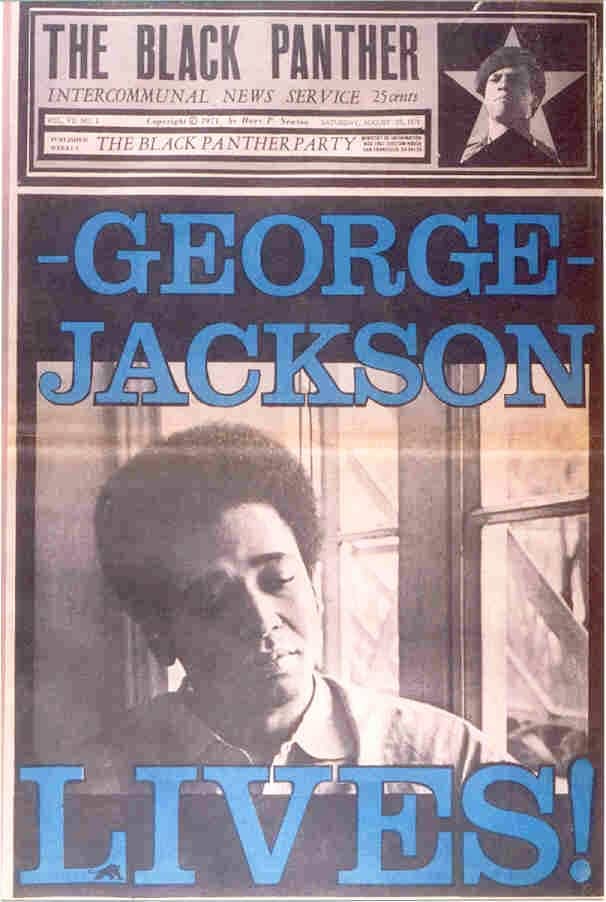
“These Black, Black, Black, Black men (if you can swallow their shallow shit) have had time to study, some have traveled, they ‘know’ that it was capitalist agricultural economics that first caused our pain, and that the only change since then is the decline of the agricultural elite and the rise of the modern bourgeoisie. A sweat-shop displaced the plantation. [In 2013, it’s the prison industrial complex and outsourcing.] Could it have escaped their notice that all the African states that really liberated themselves booted out the foreign businessmen and are now socialist states? [Unfortunately, the ‘foreign businessmen’ returned and there are no African states that remained socialist.]
“No, I think the strongest suggestion is that they are working for the government, the new house-niggers. And what better way is there for them to sell themselves to us than to scream Black, Black, Black, Black ….”
George Jackson wrote: “We find ourselves forced into a reexamination of the whole nature of Black revolutionary consciousness and its relative standing within a class society steeped in a form of racism so sensitized that it extends itself even to the slightest variation in skin tone.
“The great majority of Blacks reject racism. They have never found it expedient, wise or honorable to take on the characteristics of the enemy” (“Blood in My Eye”).
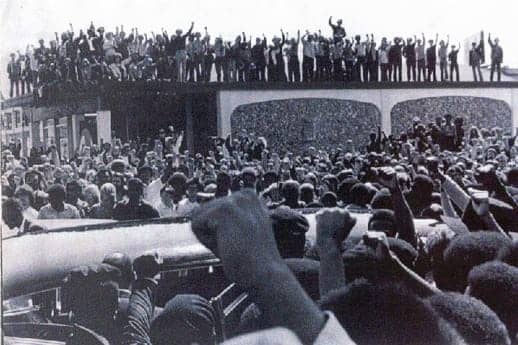
In his first best seller of 1970, “Soledad Brother: The Prison Letters of George Jackson,” Comrade wrote: “The government buys and trains these running dogs very carefully, and sends them scrambling, tails and all, outward to represent the establishment. Whole kennels are sent to the African nations … on the supposition that the people of these nations will be able to relate better to a Black face.” George goes on to say that they throw up “one more barrier to the communion that we must establish with the other oppressed peoples of the world.”
In a letter written to a comrade, published in “Blood in My Eye,” George wrote: “We have finally arrived at scientific revolutionary socialism … I was hoping that you wouldn’t get trapped in the riot stage like a great many other very sincere brothers … They think they don’t need ideology, strategy or tactics. They think being a warrior is enough.”
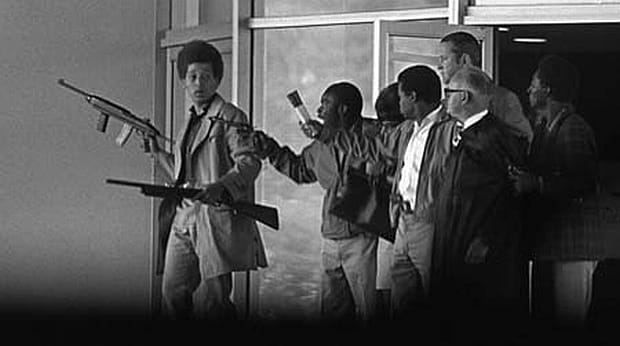
“Any Black who would defend an African military dictatorship is as much a fascist as Hoover. Are you aware of how the people are living under these so-called Africanized fascist cultures? The Congo and the entire West Coast of Africa … are still slave states, dominated by Westernized Black right-wing puppets.
“I’m thoroughly sick of the old Jess B. Simples (young ones too). They’ll be your main source of opposition in communizing the Black colonies here. The ‘good white people’ who own things will always give them a few inches in their papers or other media. That’s how ‘fascism’ works, influencing the masses and institutions through elites.”
The origin of Black August
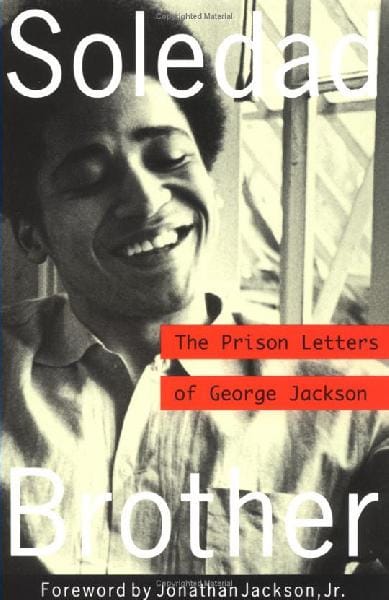
As the decades passed, the tradition of honoring our fallen freedom fighters – sparked by the August events described below – was expanded to include commemorating revolutionary wars of resistance and self-determination, such as Harriett Tubman’s Underground Railroad and the Haitian Revolution of August 1791, culminating in the first Black republic of the world.
A time to embrace the principles of unity and resistance, Black August had its origins in the “Black Movement” behind California prison walls in the 1960s.
Aug. 7, 1970, the spectacular Courthouse Slave Rebellion hit the front pages of newspapers around the world. Pictures of four young Black freedom fighters emerging from the Marin County Courthouse with guns and hostages provoked panic among white supremacists. But most Black folks took great pride and inspiration from the sight of such courageous resistance to the ongoing brutality and murder of Blacks inside and outside of prison.
“Freeze!” shouted 17-year-old Jonathan Jackson, “We’re taking over,” as he tossed guns to McClain, Christmas and Magee. With courage and calm they ushered their hostages to a waiting van, planning to go to a radio station to broadcast the atrocities being committed behind the walls against Blacks and demand the immediate release of the Soledad Brothers – George Jackson, Fleeta Drumgo and John Clutchette.
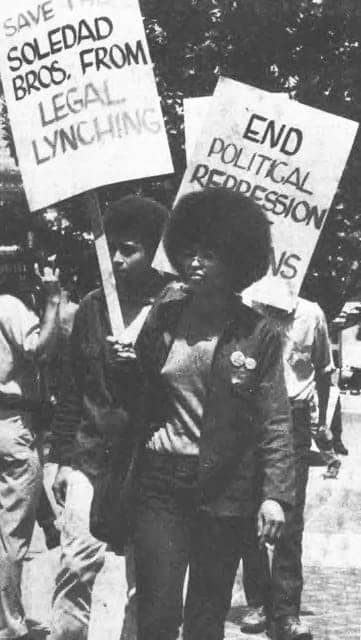
One year later, on Aug. 21, 1971, in what has been well established as a setup, George Jackson was murdered on the yard of San Quentin by prison guards.
During this orchestrated attempted escape, however, three guards were also killed, along with two inmate “trustees.” This set the prison officials on fire and they’ve been exacting revenge ever since upon Hugo Pinell (known affectionately as Yogi) whom they can’t seem to torture enough – even though he was not convicted of murder in the case, as was Johnny Spain, who was released in 1988.
Yogi, now 69 years old, is suffering his 49th year of incarceration, most in solitary confinement.
Yogi, now 69 years old, is suffering his 49th year of incarceration, most in solitary confinement, the last 23 in Pelican Bay’s SHU (Security Housing Unit), locked down at least 23 hours a day in a torture chamber – no-contact limited visits, no phone calls, no windows, restricted property. Fortunately, Magee’s legal expertise got him out of the SHU in 1994.
Yogi’s current attorney, Keith Wattley of Uncommon Law, is trying to preclude a 15-year hit at Yogi’s next board hearing Oct. 22 and needs all the help he can get to proceed in Yogi’s behalf. For more information, go to www.hugopinell.org.
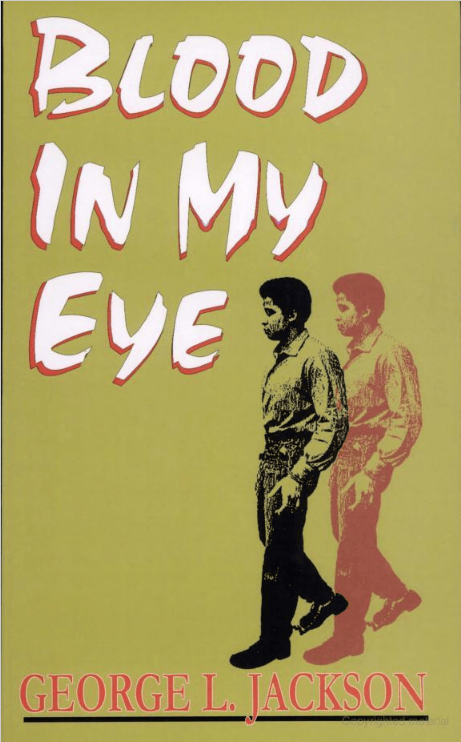
At 16, Magee was arrested, tried as an adult and incarcerated in the infamous Angola State Prison in his home state of Louisiana – basically for associating with a white girl. Released after eight years but banished from the state, Magee lasted only six months in Los Angeles before suffering an egregious and brutal encounter with L.A. police – over a $10 bag of weed – that put him back in prison in 1963.
An astute jailhouse lawyer, Magee continued to fight his case through the courts for seven years to no avail or until he seized the hour and joined the guerrillas on Aug. 7, 1970. Seriously wounded but still alive, Magee was subsequently tortured and charged with everything they could throw at him. He continues to fight his case to this day. He said to me decades ago, “As long as you remain in the fight, you never know who’s going to win.”
Ruchell Magee is enduring his 50th year in Corcoran’s maximum security prison – a classic case of this country’s racist repression of Black men.
“So what is to be done after a revolution has failed?” asks George. After our enemies have created a conservative mass society based on meaningless electoral politics, spectator sports and a 3 percent annual rise in purchasing power strictly regulated to negate itself with a corresponding rise in the cost of living, what can we do with a people who have gone through the authoritarian process and come out sick to the core?
“Our overall task is to separate the people from the hated state. They must be made to realize that the interests of the state and the ruling class are one and the same. They must be taught to realize that the present political regime exists only to balance the productive forces within the society in favor of the ruling class. It is at the ruling class and the governing elites, including those of labor, that we must aim our bolts” (“Blood in My Eye”).
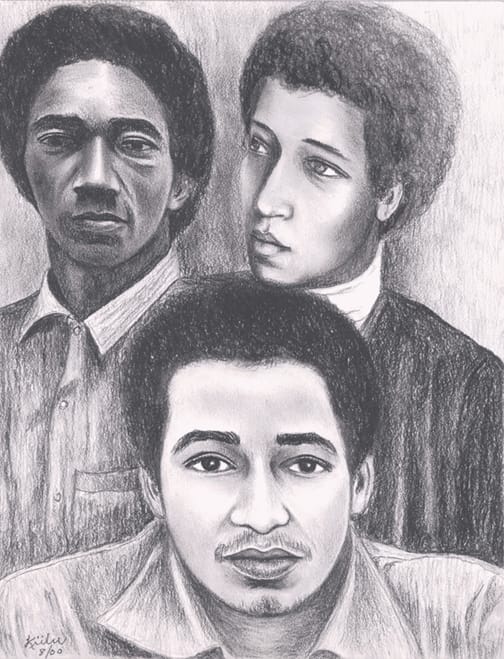
“That’s how ‘fascism’ works, influencing the masses and institutions through elites.”
“Settle your quarrels, come together, understand the reality of our situation, understand that fascism is already here, that people are dying who could be saved, that generations more will live poor butchered half-lives if you fail to act. Do what must be done; discover your humanity and your love in revolution” (“Blood in My Eye”).
Please send our brothers some love and encouragement:
- Hugo L.A. Pinell, A-88401, PBSP SHU D3-221, P.O. Box 7500, Crescent City, CA 95531-7500
- Ruchell Cinque Magee, A-92051, CSATF Corcoran, C8-117, P.O. Box 5246, Corcoran, CA 93212
Kiilu Nyasha, Black Panther veteran and revolutionary journalist, hosts the TV talk show Freedom Is a Constant Struggle broadcast live on Thursdays at 5-5:52 p.m. on SF Commons, San Francisco Channel 76, and rebroadcast Wednesdays at 9:30 p.m. on Channel 29, and blogs at The Official Website of Kiilu Nyasha, where older episodes of Freedom Is a Constant Struggle, along with her essays, are posted. More recent episodes can be found at www.archive.org. She can be reached at Kiilu2@sbcglobal.net.





